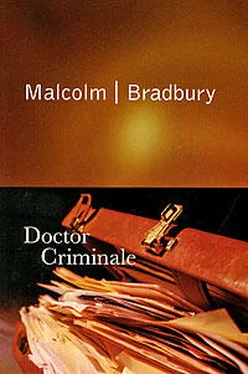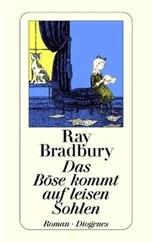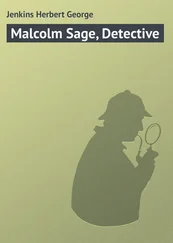Malcolm Bradbury - Doctor Criminale
Здесь есть возможность читать онлайн «Malcolm Bradbury - Doctor Criminale» весь текст электронной книги совершенно бесплатно (целиком полную версию без сокращений). В некоторых случаях можно слушать аудио, скачать через торрент в формате fb2 и присутствует краткое содержание. Город: London, Год выпуска: 2000, ISBN: 2000, Издательство: Picador, Жанр: Современная проза, на английском языке. Описание произведения, (предисловие) а так же отзывы посетителей доступны на портале библиотеки ЛибКат.
- Название:Doctor Criminale
- Автор:
- Издательство:Picador
- Жанр:
- Год:2000
- Город:London
- ISBN:978-0330390347
- Рейтинг книги:5 / 5. Голосов: 1
-
Избранное:Добавить в избранное
- Отзывы:
-
Ваша оценка:
- 100
- 1
- 2
- 3
- 4
- 5
Doctor Criminale: краткое содержание, описание и аннотация
Предлагаем к чтению аннотацию, описание, краткое содержание или предисловие (зависит от того, что написал сам автор книги «Doctor Criminale»). Если вы не нашли необходимую информацию о книге — напишите в комментариях, мы постараемся отыскать её.
Doctor Criminale — читать онлайн бесплатно полную книгу (весь текст) целиком
Ниже представлен текст книги, разбитый по страницам. Система сохранения места последней прочитанной страницы, позволяет с удобством читать онлайн бесплатно книгу «Doctor Criminale», без необходимости каждый раз заново искать на чём Вы остановились. Поставьте закладку, и сможете в любой момент перейти на страницу, на которой закончили чтение.
Интервал:
Закладка:
Malcolm Bradbury
Doctor Criminale
For Dominic (a Nineties person) – and for Matthew too
What is history to me?
—Ludwig WittgensteinHe who has eyes to see and ears to hear grows convinced that mortals can conceal no secrets. He whose lips are silent, chatters with his fingertips; betrayal oozes through every pore.
—Sigmund FreudEverything is the same,
Nothing is better.
A mule is equal with a great professor.
—Argentinian Tango1
I first met her at the Booker Prize for Fiction . . .
As it happened (and most of this did more or less happen), I first met her at the Booker Prize for Fiction. We both turned up at the great autumn prizegiving dinner in the London Guildhall; she was there to tell one kind of story, I was there to tell another. She was an assistant producer on the live television coverage for the BBC’s ‘Late Show’, which for once was going out earlier than usual; I was covering the great event for the What’s Happening section of the Serious Sunday newspaper I worked for – which, since the Booker Prize beanfeast fell on a Tuesday, meant that my copy was going out later than usual. And in the event it did not go out at all, for my Serious Sunday, as Serious Sunday newspapers seem to have a way of doing, went bankrupt in the interim.
So she was wrapped up in all the modern technics, the ducts and cabling, the lamps and dollies, the backpacks and betacams, that we need to turn real life into a technological fiction so that we can perceive it as reality again; I had a Biro and a spiral notepad in my pocket. She was red-haired, and clad in low-cut and thong-tied black, as if she were about to attend some erotic funeral; I, because no one at the Serious Sunday had warned me that the Booker is a monkey-suit job, was rigged out in my usual green shellsuit and Reebok trainers – for ours, as you know, is an age of colour. She had arrived at the glittering London Guildhall, and as I was to discover from experience would later also leave it, in a long, low chauffeur-driven contract limousine; I had padlocked my mountain bike to some fine City of London lamppost or other and deposited my cycling helmet in the Guildhall’s great downstairs marble-vaulted loo. She, wired for sound and clipboard in hand, was already on duty in the bright glass-walled entrance lobby, halting the brightest and best of the great and the good as they entered, and asking them to give the cameras a few sprightly words on the likely winning novel. And I, having wheedled an unwilling press-pass from the frosty guard-girls on the hostess desk, was following an ancient rule of my even more ancient profession, and heading through the lobby to the reception salon to get my frosted hands around a warming drink.
So she was media wise, and I was word foolish; and it seemed that nothing in this weird wayward old celesto-system of ours could possibly have destined us to meet. But meet we somehow did. ‘You look like a nice upstanding young man,’ she said, halting me with her clipboard, ‘Wouldn’t you like to have your picture taken for the television?’ Now to this day, this very day (and by this I mean the day I sit down to write this, not the day when, with usual readerly lethargy, you sit down to read it, which could be years from now), I can’t understand why she took the fatal decision to stop me rather than someone else, why she supposed that the snap opinions of a totally unknown literary journalist (if she even knew that that was what I was) on the year’s prize fictions would be worth a groat to the tired evening viewer. Except of course that I can, because I was indeed a nice upstanding young man (and still am, I assure you, to this day, this very day), while most of the brightest and best of the great and the good, who were passing by in their ancient, wine-soaked evening finery, were very definitely not.
No more can I understand why, when asked, I consented. Except of course that I can, for who among us, however wise in other things, is not fool enough to be seduced by a little media attention, or doesn’t suppose that by appearing on television our lives will somehow be made more real? I should have known better; but, frankly, there is nothing in this world more erotic than the searching, sucking lens of the television camera, especially when its claims are backed by the lure of a red-haired, low-cut, thong-tied, smiling female advocate. So she smiled at me brightly, I consented to her warmly; and then she took my hand and led me aside to the camera set-up, tucked away just round a corner. Here she presented me to the presenter, who, like all ‘Late Show’ presenters that year, was henna-haired, female, and heavily pregnant, set me in position before the truculent dark lens of the camera and its truculent dark cameraman, tilted my head, tousled my hair, dabbed an acned spot or two on my face with powder, rearranged my legs a little, and left me to my fate.
Now to this day, this very day, I really cannot imagine why I then went on to say what I then went on to say. Except of course that I can. Because this particular Booker Prize happened to fall right in the lull or dark hollow between the Entrepreneurial Eighties and the Nervous, Nebulous, Nailbiting Nineties. In the Big World, out there beyond the formal London Guildhall and the new, postmodern financial towers of the City of London, more than forty years of history were daily coming unravelled. The Berlin Wall had only lately toppled, and was already starting to fetch high prices on the art marketplace (especially if you could find a piece that had actually been signed by Honecker). It was now Bush and not Reagan who presided over the golf-courses and budget deficits of the United States; but on the throne of Britain Margaret Thatcher was still in power, and in the Soviet Union Mikhail Gorbachev still survived, the great architect of the age of glasnost and perestroika. Right across Eastern Europe the statues fell and the busts tumbled, of Lenin and Stalin, Ceauşescu and Hoxha, now scrap metal, wasted history. Frontiers opened, half Albania was on the boats, independent republics were declaring themselves, Germany was shaking hands with itself in re-unification, and everyone everywhere was talking about the Great Turn of the world.
So streetwise historians were announcing the End of History, journos like me were noting the Close of the Cold War, politicians everywhere were talking of the New World Order-especially those in the New World. Marxism and the command economy were plainly dying of terminal exhaustion. On the other hand liberal capitalism wasn’t doing so very well either. There was budget crisis in Washington, high-street recession in Britain, the fiscal jitters in Tokyo, and bank fraud all over the place. In Brussels Napoleonic dreamers were reinventing Europe, if they could just find out where its edges started and stopped. There was conflict in Yugoslavia, independence rioting in the Baltics, ethnic and tribal tension everywhere. Over the European fringes, Saddam Hussein (former Takriti street-fighter, and BBC World Service man of the year), thinking it was passing brave to be a king and ride in triumph through Persepolis, had sent a genocidal army to murder, rape and pillage in nearby friendly Kuwait. Meanwhile the millennium was to hand, the polar ice-cap was melting, the ozone layer depleting. There were sexual plagues, floods, droughts, severe famines, earthquakes, outbursts of boils and mass gatherings of locusts. To a nice upstanding young fellow like myself, in my green shellsuit and Reebok trainers, these were troubling days. They were also my days.
Meanwhile back in British fiction it was nostalgia time.
Читать дальшеИнтервал:
Закладка:
Похожие книги на «Doctor Criminale»
Представляем Вашему вниманию похожие книги на «Doctor Criminale» списком для выбора. Мы отобрали схожую по названию и смыслу литературу в надежде предоставить читателям больше вариантов отыскать новые, интересные, ещё непрочитанные произведения.
Обсуждение, отзывы о книге «Doctor Criminale» и просто собственные мнения читателей. Оставьте ваши комментарии, напишите, что Вы думаете о произведении, его смысле или главных героях. Укажите что конкретно понравилось, а что нет, и почему Вы так считаете.











